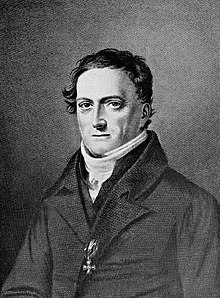Malleability
As plasticity refers to the ascribed to the human ability to develop skills to learn and to form with educative support and in interactions with the world.
Concept history
The term points back far into history and is already addressed in ancient myth (e.g. in the theogony of Hesiod) as a peculiarity of humans who are not naturally made, but have to develop their abilities and talents themselves . Rousseau attributes this ability to children and adolescents in a special way and recognizes in it a prerequisite for upbringing. The term plasticity is used in German idealism as well as in the classical, romantic and enlightened poets. It was taken up by the classics of pedagogy in the first half of the 19th century to describe the possibility of having an educational effect on adolescents and supporting educational processes. Johann Friedrich Herbart raised the term plasticity to the basic concept of education. In pedagogical contexts it does not only mean the ability to learn in the sense of figurability, but is a basic concept of pedagogical interaction.
See also: learning competence
literature
Lexicon article
- Elmar Anhalt: malleability / need for education . In: Uwe Sandfuchs, Wolfgang Melzer , Bernd Dühlmeier, Adly Rausch (Hrsg.): Handbook Education . Klinkhardt, Bad Heilbrunn 2012, ISBN 3-8252-8488-3 , p. 124-143 .
- Dietrich Benner , Friedhelm Brüggen: plasticity / education . In: Dietrich Benner, Jürgen Oelkers (Hrsg.): Historical dictionary of pedagogy . Beltz, Weinheim / Basel 2004, ISBN 3-407-83153-6 , p. 174-215 .
Essays
- Elmar Anhalt: plasticity. JF Herbart's pedagogical problem from today's perspective . In: Klaus Klattenhoff (Ed.): On the current Herbarts legacy. A classic in pedagogy after the turn of the millennium (= regional school history ). tape 12 . Bis, Oldenburg 2004, ISBN 3-8142-0918-4 , pp. 99-138 .
- Elmar Anhalt: The Topos »Plasticity« . In: Andreas Dörpinghaus , Karl Helmer (Ed.): Topics and Argumentation (= contributions to the theory of argumentation in pedagogy ). tape 3 . Königshausen & Neumann, Würzburg 2004, ISBN 3-8260-2779-5 , p. 111-132 .
- Elmar Anhalt: About the place of plasticity and the concept of plasticity in Johann Friedrich Herbart's educational thinking . In: Quarterly journal for scientific pedagogy . tape 76 , 2000, ISSN 0507-7230 , p. 151-176 .
Monographs
- Elmar Anhalt: Plasticity and Self-Organization. Johann Friedrich Herbart's concept of plasticity as the basis for an educational theory of the self-organization of organismic activity . Deutscher Studienverlag, Weinheim 1999, ISBN 3-89271-866-0 .
- Dietrich Benner: General pedagogy. 8th edition . Beltz Juventa, Weinheim 2015, ISBN 978-3-7799-2181-3 .
- Petra Korte: Project Mensch - "A fragment from the future" (= texts on the theory and history of education ). Lit, Münster 1995, ISBN 3-89473-537-6 .
- Josef Kühne: The concept of plasticity and the justification of ethics in Johann Friedrich Herbart (= Zurich contributions to pedagogy . Volume 15 ). Juris, Zurich 1976, ISBN 3-260-04096-X .
- Ursula Reitemeyer: perfectibility versus perfection. (= Texts on the theory and history of education ). Lit, Münster 2013, ISBN 978-3-8258-2643-7 .
